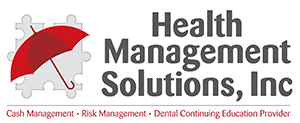The credentialing process is the process by which healthcare providers get vetted by each insurance provider to be approved as participating providers and be included in their Insurance Panels. The process is complicated mainly because each State has specific regulatory guidelines and the process, requires constant monitoring, documentation –time-sensitive– submission, and follow-up. The process can take longer for certain professionals.
For example, recent medical school graduates may not be able to gather all the required documentation as they wait for schools to confirm their graduation and for Board testing results to be posted. Other outliers are healthcare providers who have had malpractice cases or who have had a Board of Medicine disciplinary action; in both cases, it is a tedious time-consuming process, and the timing may not be in-line with the insurance plan’s time-sensitive documentation submission schedule, at times requiring resubmission of the initial application.
Associated services include Individual Provider Enrollment, Group Provider enrollment, CAQH Completion and Management, Hospital Privileging, Medical Staff Credentialing, re-credentialing, and Credentialing Appeals. We provide services from small to large healthcare providers such as Solo Practices, Physicians, Physician Assistants, Nurse Practitioners, Dentists, Psychology Counselors, Physical Occupational and Speech Therapist, Group Medical Practices, Large Medical Centers, Healthcare Facilities, DME Companies, and Home Health Agencies.
OTHER SERVICES
1. Licensing and Registrations-A limited-time permission that a state government grants to a physician or doctor to start a medical practice. are interchangeable, which grants the authority/ability to practice a profession on a state level. Being licensed in a profession is an indication that you have the minimum competencies required to perform tasks related to that profession.
a. AHCA Health Care Clinic including Exemptions–, licensure and regulation of Florida’s health facilities and for providing information to Floridians about the quality of care they receive.
b. Pharmacy licensing in all states 50 – Requirements for a pharmacy permit vary by state. Like most healthcare-related facilities, pharmacies are heavily regulated and must obtain several state and federally-issued licenses. While licensing and registration requirements are only a part of the regulatory challenges that pharmacies face, meeting these requirements is the key to receiving and maintaining the legal authority to operate a pharmacy.
After forming a legal entity, pharmacies can begin the process of applying for operating licenses and permits, usually through the state board of pharmacy. At this point in the licensing process, pharmacies should know which schedule(s) of controlled substances they plan to distribute, the type of services that will be offered, the location of the facility, and who will be acting as the pharmacist-in-charge of the facility. Also, license application and renewal of the license of the Pharmacist in Charge of the Pharmacy.
i. City, County, and State
c. DEA and State renewal order to prescribe controlled substances, a physician or mid-level practitioner needs to have an active drug enforcement agency (DEA) license. The DEA regulates both the prescribing and distribution of controlled medications such as narcotics and sedatives in the United States
2. Commercial Insurance Provider enrollment and credentialing (BCBS of Florida, Cigna, Aetna, Humana, UHC, Tricare, etc.).
3. Medicare and Medicaid Provider enrollment and credentialing for groups and individual providers.
4. Medicare and Medicaid revalidation-a complete and thorough re-verification of the information contained in your Medicare enrollment record to ensure it is still accurate and compliant with Medicare regulations. Simply put, revalidation is re-enrollment. Medicaid- In general, providers and suppliers revalidate every five years, but DMEPOS suppliers revalidate every three years
5. Medicare DMEPOS is enrollment for Physicians groups-durable medical equipment, prosthetics, orthotics, and supplies
6. PECOS-PECOS is the online Medicare enrollment management system that allows you to: Enroll as a Medicare provider or supplier. Revalidate (renew) your enrollment. Withdraw from the Medicare program. Review and update your information
7. SAM and OIG verifications- OIG-fight waste, fraud, and abuse and to improving the efficiency of Medicare, Medicaid, and more than 100 other Department of Health & Human Services (HHS) programs. SAM -The System for Award Management (SAM) is a government-wide registry for vendors doing business with the Federal government
8. NPDB Query-a web-based repository of reports containing information on medical malpractice payments and certain adverse actions related to health care practitioners, providers, and suppliers.
9. CAQH Initiation and Maintenance is an alliance of health plans, providers, and related organizations working together to make the business of healthcare streamlined and efficient.
10. NPI verification and registration Type I and Type II.
11. Credentialing and ongoing monitoring. Weekly reports and follow-up emails.
12. Insurance contracts and enrollments- The two main types of insurance contracts in the United States are fee-for-service and value-based. Fee-for-service contracts have been in use for decades in the United States, while value-based contracting has only recently gained widespread traction.
13. Payors and Government Payors-the Medicare program, the Medicaid program, and any other federal, state, or other governmental body, agency, department, plan, program, or entity that administers, funds, pays, contracts for, or provides medical items, services, and/or prescription drugs.
a. Initial enrollment, Revalidation/credentialing with Federal, State, and Commercial Payors.
